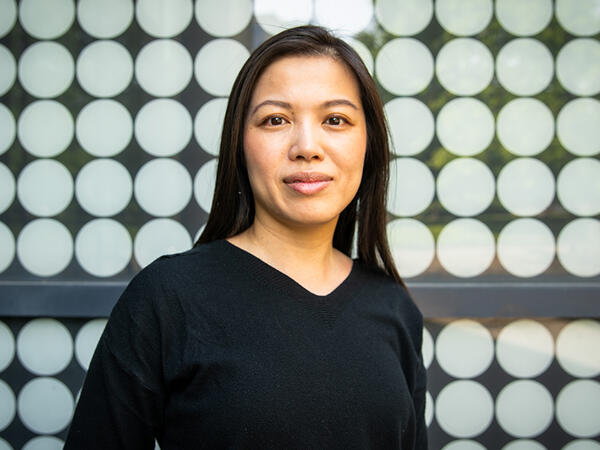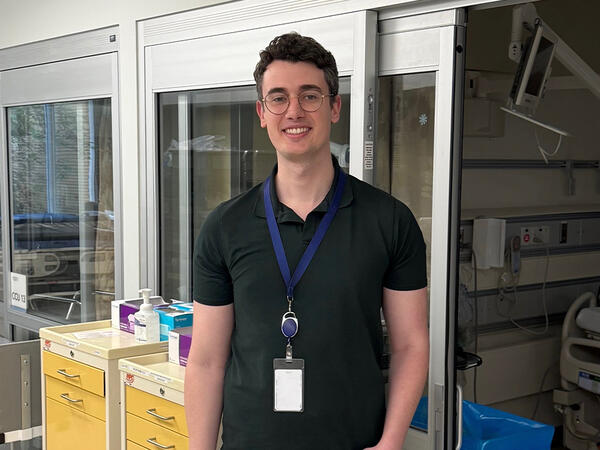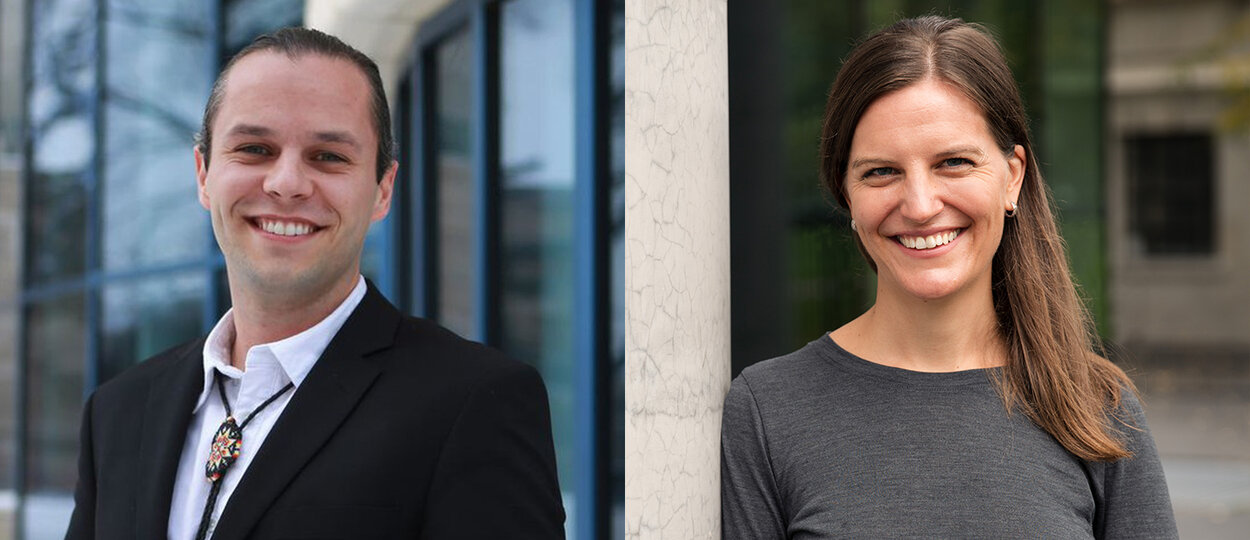The Leslie Dan Faculty of Pharmacy has recruited Jaris Swidrovich and Naomi Steenhof as assistant professors in the Teaching Stream. Both Steenhof and Swidrovich have clinical backgrounds in hospital-based pharmacy practice and each offers unique expertise on how to advance pharmacy education to meet student and patient needs into the future.
Jaris Swidrovich
Swidrovich completed his postbaccalaureate PharmD degree at the Leslie Dan Faculty of Pharmacy in 2013 and began his clinical work at St. Paul’s Hospital in Saskatoon. His areas of research and practice include HIV/AIDS, substance use disorders, 2SLGBTQ+ health, Indigenous health, social determinants of health, pharmacy practice, and pharmacy / health professions education.
As a Two Spirit Saulteaux First Nations man from Yellow Quill First Nation with Ukrainian heritage, Swidrovich is widely recognized across the Canadian pharmacy landscape for his contributions to the emerging processes of decolonizing and Indigenizing pharmacy education and practice. He is looking forward to connecting with Indigenous leaders in Toronto and developing new opportunities for PharmD students to engage with and learn Indigenous health traditions.
“Some of the greatest gaps in health care outcomes in Canada exist between Indigenous and non-Indigenous peoples. As pharmacists we have an important role to play in addressing those gaps and learning how best to do this begins with the education offered through our post-secondary programs,” he said.
“We have not yet benefitted from having Indigenous voices and traditions integrated into our pharmacy educational systems and I am eager to continue to build these opportunities at U of T.”
Prior to beginning his appointment at the Leslie Dan Faculty of Pharmacy in October 2021, Swidrovich held the position of assistant professor in the College of Pharmacy and Nutrition at the University of Saskatchewan where he was also co-scientific director of the nātawihowin (art of self-healing) First Nations Health and Wellness Network. He continues to pursue a PhD in Education at the University of Saskatchewan.
Naomi Steenhof
Steenhof completed her Bachelor of Science in Pharmacy at the Leslie Dan Faculty of Pharmacy in 2011 and a residency at the University Health Network in 2012. After working in Internal Medicine for five years, she continued her education at Maastricht University in the Netherlands and graduated with a Masters of Health Professions Education in 2018. Her master’s research focused on the effect of productive failure as an instructional design strategy in pharmacy education. At the same time, she also completed a research fellowship at The Wilson Centre in Toronto.
Steenhof’s area of clinical expertise is in chronic pain and geriatrics. She practices as a Pharmacotherapy Specialist with an interdisciplinary team in the Comprehensive Integrated Pain Program (CIPP) at the University Health Network. Her focus is on medication management, tapering opioid medications, and the use of buprenorphine-naloxone therapy for patients suffering from chronic pain.
Steenhof recently completed her PhD at the University of Toronto, successfully defending in September 2021. Her thesis, Abandoning the Path of Least Resistance: Struggle in Health Professions Education explores the crucial role of struggle in learning and methods by which to support novice pharmacy learners in their professional trajectories.
In 2019, Steenhof was the Lecturer and Teaching Award recipient as part of the Leslie Dan Faculty of Pharmacy’s Faculty Education Development Day. Her work in the scholarship of teaching also outlines the important differences between procedural and conceptual knowledge and how conceptual knowledge helps future pharmacists to continuously build knowledge as they move through their careers. Building conceptual knowledge elevates the “why” over the “what” and helps to lay the groundwork for adaptive, innovative expertise.
“Education must prepare future experts,” Steenhof said. “That said, we don’t definitively know what the future of pharmacy practice will look like twenty or thirty years out so we need to provide the type of education that will enable students to be prepared to meet new and difficult challenges.”
More News
Image

Welcoming Ivy Lam as Academic Lead in Climate, Health & Sustainable Care
Assistant Professor Lam will guide the Leslie Dan Faculty of Pharmacy's efforts to embed environmental sustainability across the Faculty.
Read More
Image

Pharmacy alum’s research shows how full-scope practice improves cancer care
Honoured with a national award, Adrian de Boer says his residency experience was a powerful reminder that he's making a meaningful change to the pharmacy profession.
Read More
Image

Pharmacy alum passionate about helping community pharmacists practice to full scope
As a pharmacy leader at Rexall, Heidi Wittke uses frontline experience to lead initiatives that improve patient care
Read More
